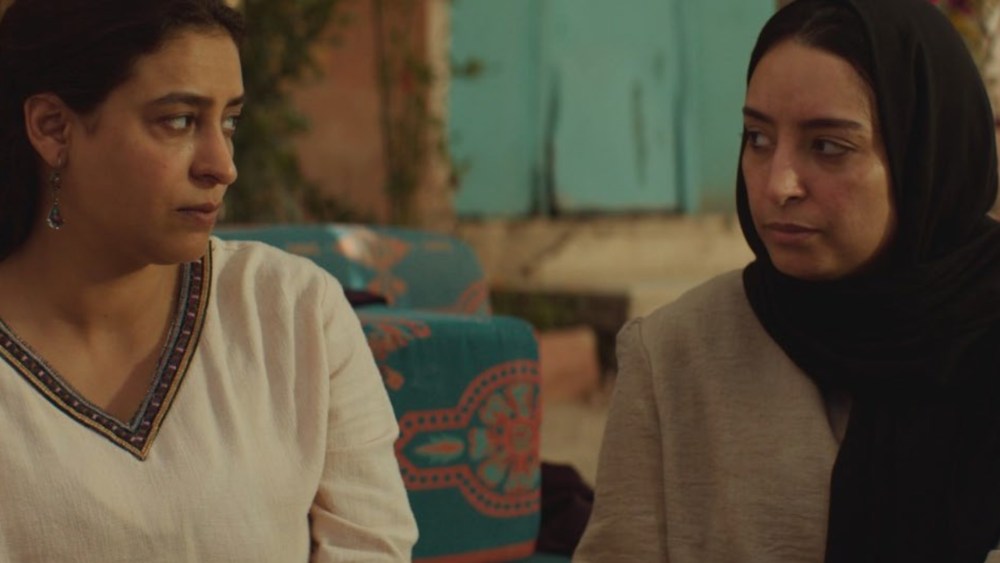Yemeni Scottish filmmaker Sara Ishaq, who was Oscar-nominated in 2012 for her short documentary “Karama Has No Walls,” is in post-production on her fiction feature debut, “The Station,” which the director will be taking to the Venice Production Bridge’s Final Cut workshop, running from Aug. 31 – Sept. 2.
The film centers on a women-only fuel station in a segregated, war-torn town and follows Layal, a young woman confronted with her 12-year-old brother’s growing desire to break free and become a man. When Layal’s estranged sister unexpectedly shows up with a proposition for him, the siblings’ relationship is put to the test.
Featuring a cast of mostly non-professional Yemeni actors, “The Station” is written by Ishaq and Nadia Eliewat and produced by Screen Project and Georges Film, in co-production with One Two Films, Kepler Film, Barents Film, The Imaginarium Films, Setara Films and Ta Films. Eliewat of Amman-based Screen Project is the lead producer. Paradise City Sales is handling world sales rights.
“The Station” — which Ishaq describes as “an ode to the people of Yemen” — marks the latest cinematic chapter in the director’s long-running relationship with the country of her birth. Ishaq was raised in Yemen but left at the age of 17 to live with her mother in Scotland. It was while she was there, working toward an MFA in filmmaking in Edinburgh, that the Arab Spring erupted in 2011. She immediately booked a flight to Yemen, arriving on the day that protests broke out in the capital, Sanaa.
Though she would find work with foreign news agencies and documentary crews reporting on the revolution, Ishaq felt that their perspectives were inevitably “far removed from what the reality was.” She had been making films in Yemen since 2007 and was determined to capture a more nuanced and complex portrait of the country. “There’s always this othering that ends up happening [with foreign observers], even if it’s inadvertent,” she said. “So for me, it was very important…to try to tell these stories from within.”
That determination led to Ishaq’s debut short documentary “Karama Has No Walls” (2012), about the 2011 massacre of more than 50 peaceful protesters by pro-government gunmen, which garnered nominations for a BAFTA and an Academy Award, and the feature-length documentary “The Mulberry House,” a more personal family study set against the backdrop of the revolution, that premiered at IDFA in 2013.
“The Station” was inspired by real-life events that occurred when Ishaq returned to Yemen in 2015. There, she encountered a women-only gas station in the heart of her hometown, Sanaa. It was populated by women from all walks of life and all corners of the country who “came together with one common goal — to sustain and support their families.”
“We’d never seen anything like that before,” said Ishaq. “Women always played a huge role in [Yemeni] society. But at this particular time, where men were either laid off their jobs, or they were drawn to the fighting, women really came to the forefront…. They were still running the household but also trying to figure out ways to generate an income for their families.”
While queuing for the scarce fuel that was a “lifeline” for the war-torn populace, said the director, “women chatted from their car windows, shared food and drinks, ‘car-schooled’ their children and exchanged stories.” Despite the occasional dispute, the mood was lively and communal, with Ishaq describing it as “a utopia within this dystopian world.”

“The Mulberry House” premiered at IDFA in 2013.
Courtesy of IDFA
The director had originally hoped to film “The Station” as a documentary, but there were too many practical obstacles to overcome. Fighting between various factions often made it too dangerous to leave the house, while many Yemeni were reluctant to appear in front of a camera, which frequently aroused suspicion. Ishaq cited an expression that was often used in Yemen during the revolution: “Carrying a camera is more dangerous than carrying a gun.”
She returned to Scotland with a trove of material that she was struggling to make sense of. Meanwhile, the news reports from Yemen were giving a very different image of a country she knew in all its heartbreaking complexity. “The focus was always about the poverty of Yemen, and the destruction, and the devastation,” she said. “It was less about the people, their humanity, their strength and resilience, within the context of a beautiful country that is in fact not poor at all, but one that has been exploited and impoverished over the decades.”
It would take roughly eight years for that vision to find its form in a feature-length script, requiring Ishaq to jettison much of what she’d learned as an award-winning documentary filmmaker. Once she managed to overcome the “creative paralysis” that accompanied her “documentary mindset,” however, the director found it freeing to distill her experiences into a fictional narrative while also “creating something that is visually completely different from my documentary style.”
“The Station” is set in what Ishaq describes as a “speculative space,” a universe that functions as a “microcosm of Yemeni society” but is nevertheless “unbound by a specific time or place.” Drawing on the country’s past and present, it “reflects the gradual unraveling of the social fabric” in a place fractured by war, foreign invasions and internal political strife, but refracts that shared history “into an absurd, sometimes exaggerated parallel world.”
“At its heart, the story is not about politics. It is about people, their relationships, contradictions and resilience — what makes us not only Yemeni, but human,” said Ishaq. “It is an ode to the people of Yemen who have endured and survived years of war with dignity, humor and strength.”

